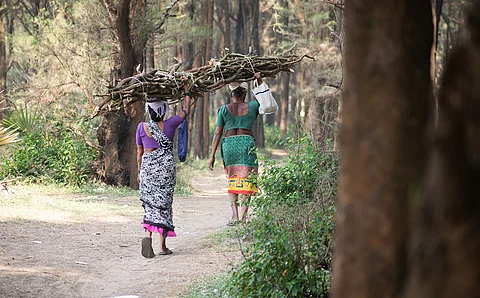

The latest report by the Intergovernmental Science-Policy Platform on Biodiversity and Ecosystem Services (IPBES) has highlighted the role of governance in protecting biodiversity.
Governance shapes how societies manage their natural resources and interact with the environment. Poor governance, which can include corruption, fragmented policies and unequal power, often leads to overuse of resources and increased biodiversity loss.
Marginalised groups, particularly indigenous peoples who are closely linked to their natural surroundings, often find themselves excluded from decision-making, making it harder to conserve the environment effectively, the report noted.
On the other hand, adaptive governance systems seek to include various types of knowledge, such as indigenous, local, and scientific perspectives. By encouraging teamwork among different stakeholders, these systems can create effective policies that protect biodiversity while ensuring that everyone’s voice is heard, and the benefits are shared fairly.
The report titled IPBES Assessment Report on the Underlying Causes of Biodiversity Loss and the Determinants of Transformative Change and Options for Achieving the 2050 Vision for Biodiversity — also known as the Transformative Change Report — was released on December 18, 2024.
The report stressed on the need for adaptive governance systems that are open, fair and flexible. These qualities are necessary to effectively deal with environmental issues such as deforestation, habitat loss and climate change.
It also drew attention to several areas where good governance can drive transformative change.
For instance, governance plays a key role in reforming economic systems to prioritise environmental sustainability and equity, the report said.
It gave the example of New Zealand. The South Pacific country has linked fisheries subsidies to strict sustainability criteria, benefiting their ecosystems. Similarly, Chile’s Lafkenche Act has redirected funds to Indigenous communities for coastal management.
It added that integration of governance across sectors helps create systemic change.
Another focus area was knowledge co-creation. The collaboration between indigenous, local, and scientific communities fosters culturally relevant and effective solutions, it noted.
Good governance that respected indigenous rights and biocultural diversity is essential for long-term sustainability, as per the document.
The analysis also cited the Satoyama Initiative in Japan, which connected biodiversity with cultural values, promoting harmony between humans and nature.
The report suggested that despite some successes, challenges still exist. Wealthy groups often control decision-making, leading to power imbalances. Corruption slows down progress, and different institutions often do not work well together, making conservation efforts less effective.
Governance systems that focus on transparency, adaptive monitoring, and ongoing evaluations respond better to new challenges. Adaptive learning allows governments to refine strategies, ensuring resilience and reducing unintended consequences, it said.